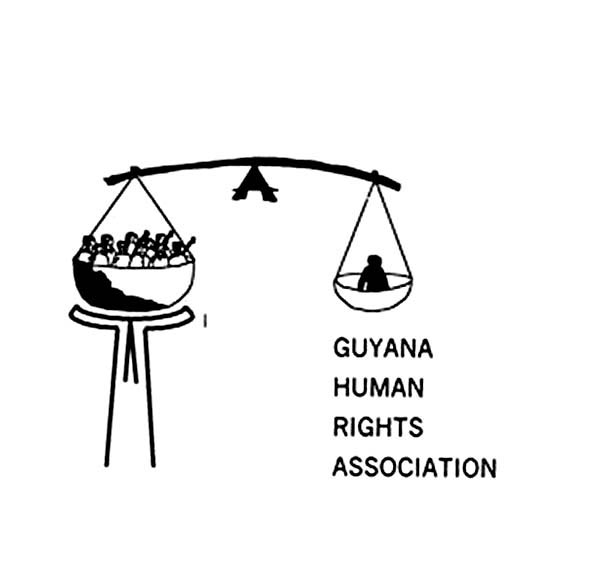The Guyana Human Rights Association (GHRA) has expressed dissatisfaction with the government’s treatment of civic bodies as business entities and has proposed that changes be made to the legal structure to address this issue.
In a release yesterday, the GHRA referenced an eight-page Notice of Default published on Saturday, March 9, in the daily newspapers which threatened over 100 named organisations with being ‘Struck Off’ the Register of Companies unless they provided a range of information to the Registry within 28 days. The authority for this demand was stated to be Section 153 of the Companies Act of 1991 and the Anti-Money Laundering/ Countering the Financing of Terrorism (AML/CFT) Act of 2023.
The release related that the ‘companies’ listed comprised a wide range of organisations in Guyana – religious, sporting, cultural, and business, and included the likes of Jesus Rescue Mission, Mercy Hospital, the Guyana Muslim Mission Limited, and the GHRA. It noted that the information required from 2012 includes audited accounts, profit & loss statements and a range of information on Beneficial Ownership.
However, as far as the GHRA is concerned, the idea that the international anti-money laundering authorities require this range of information from such organisations “is not only absurd, it reveals the contempt with which the concept of corruption is held in Guyana.”
The GHRA however assured that it will conform with the request for information, as its issue is not that it has to comply with the requirements of the law, but that as a non-profit organisation, it should not have to be automatically attuned with changes taking place in the commercial world. It went on to point out that it has been registered as a Company Limited by Guarantee in 1979, and has produced audited accounts for all the 40-odd years between then and now.
Further, the Association stated that has no difficulty with the Commercial & Deeds Registry reviewing its lists for commercial companies that may be defunct or remiss in submitting required information, nor does it object to non-profit organisations having to conform to regulations designed for them. What it “staunchly” objects to however, is commercial requirements being “automatically extended” to non-profit organizations.
To place its contention in perspective, the GHRA posited that an objective observer would ask why, for example, the Guyana Geology & Mines Commission, which handles billions of dollars of public funds and was last audited in 2012, is not under scrutiny. Moreover, it noted too that respected local and overseas professional auditors have challenged the Auditor General for signing off on “very defective” official audits of the Natural Resource Fund which also handles billions. “Surely this chaos in Government finances merits much greater attention from the AML/CTF than the likes of the Georgetown Pony Club! – which is also on the Registry List.”
In its endeavour to explain this behaviour, the GHRA opined that this mindset of drawing no distinction between the organisations it monitors is not peculiar to the Commercial Registry. It sees it as a holdover from the days when Marxism-Leninism ruled the day in the ruling party, and continues to intrude wherever this party intersects with civil society. As such, the release suggested that maybe, removing the Marxist-Leninist tag from the party’s constitution would be the first step in this government’s acquisition of a modern mindset on how society is composed. According to the GHRA, its complaint with the persistent unwillingness of government to recognise a fundamental difference between non-profit civil society organisations and commercial companies is widely shared among civic organisations in Guyana.
The release pointed out that countries that genuinely prioritise transparency and accountability reflect this primarily in their laws, but noted that in contrast, Guyana seeks to project a concern for abiding by the AML/CTF “not in its laws, but by chasing every charitable body in the country.” Moreover, Section 153 of the Companies Act of 1991 contains a Form on Beneficial Ownership which all the listed organizations are ordered to complete but which contains not a single question relevant to non-profit organizations.
Also pointed out was the fact that Beneficial Ownership is a new concept for Guyana, promoted here as a result of international concern over corruption, and not from conviction. The Government of Guyana, it added, has recently contracted international consultants to devise a pathway for comprehensive implementation of Beneficial Ownership which also involves educating the population, business and government entities on how it will be implemented. However, unfortunately, without waiting for the consultants’ recommendations, or providing a single piece of guidance, the Registry has launched its own demands.
In order to provide a more balanced approach to the issue, the GHRA has recommended that the Commercial & Deeds Registry do the following. 1) Replace its ill-considered demand with separate requirements for profit and non-profit bodies; 2) set aside Beneficial Ownership requirements until the work of the consultants is available; and 3) make the necessary legal and administrative changes to treat routinely with profit and non-profit organizations as distinct in nature.






